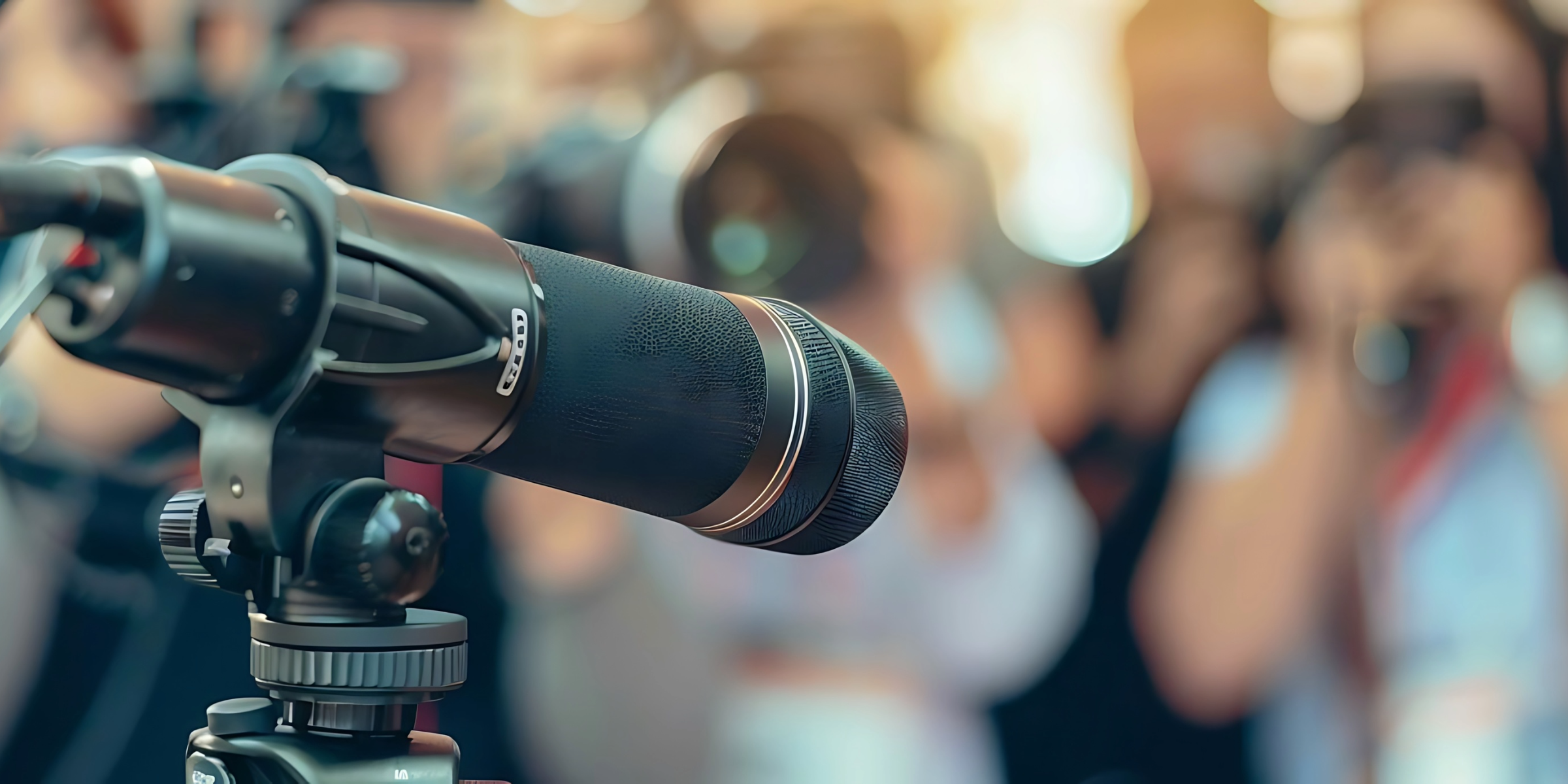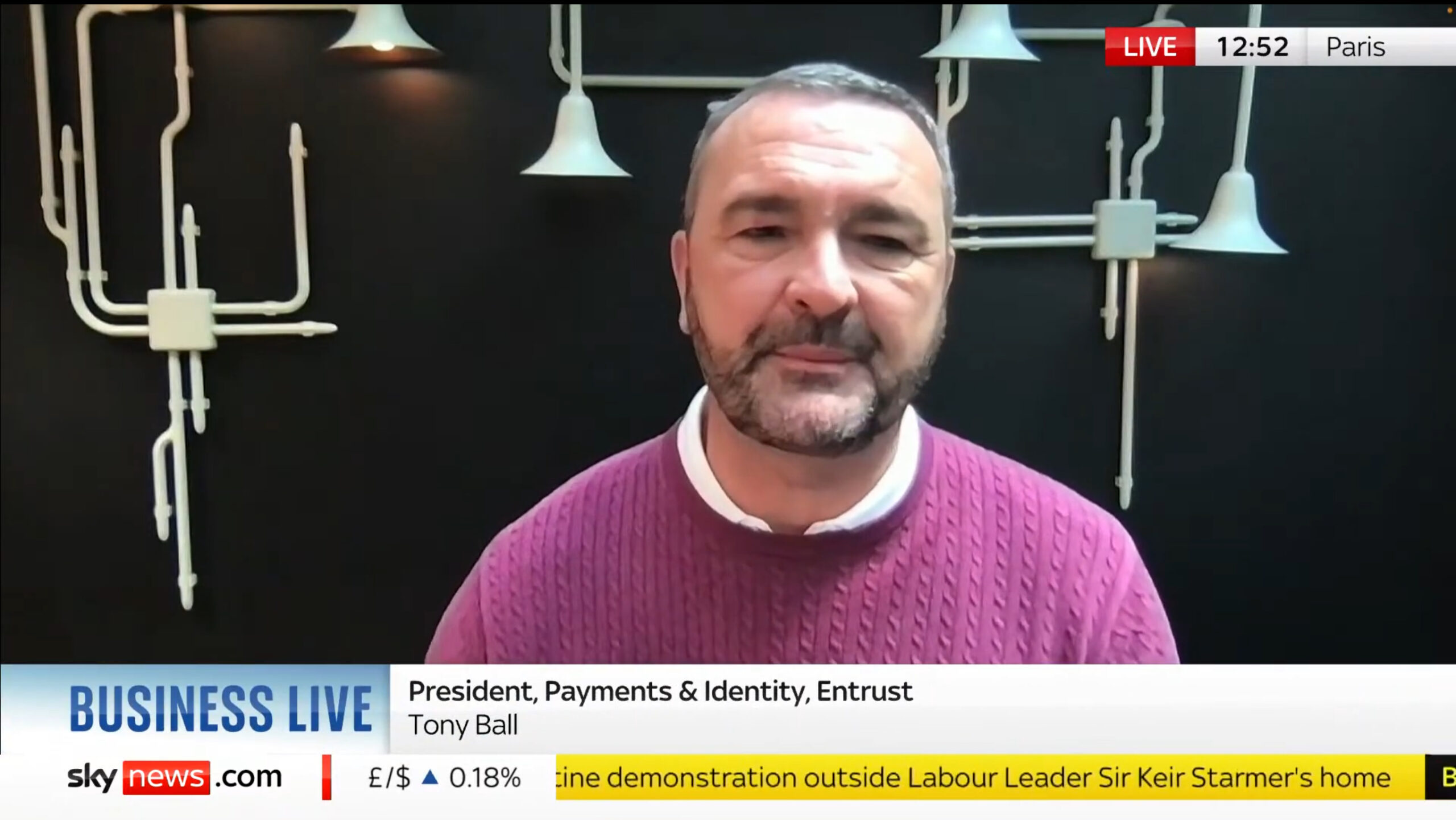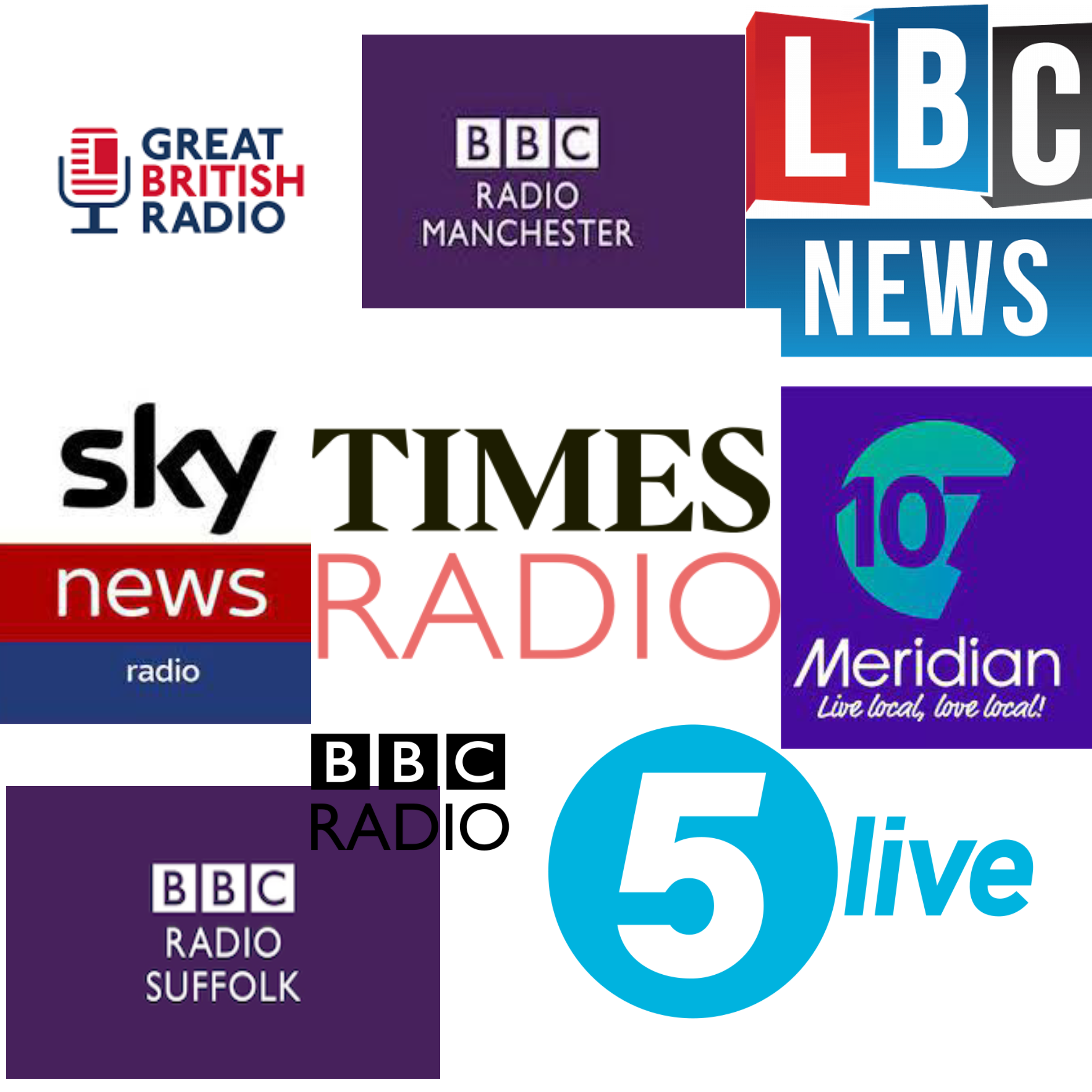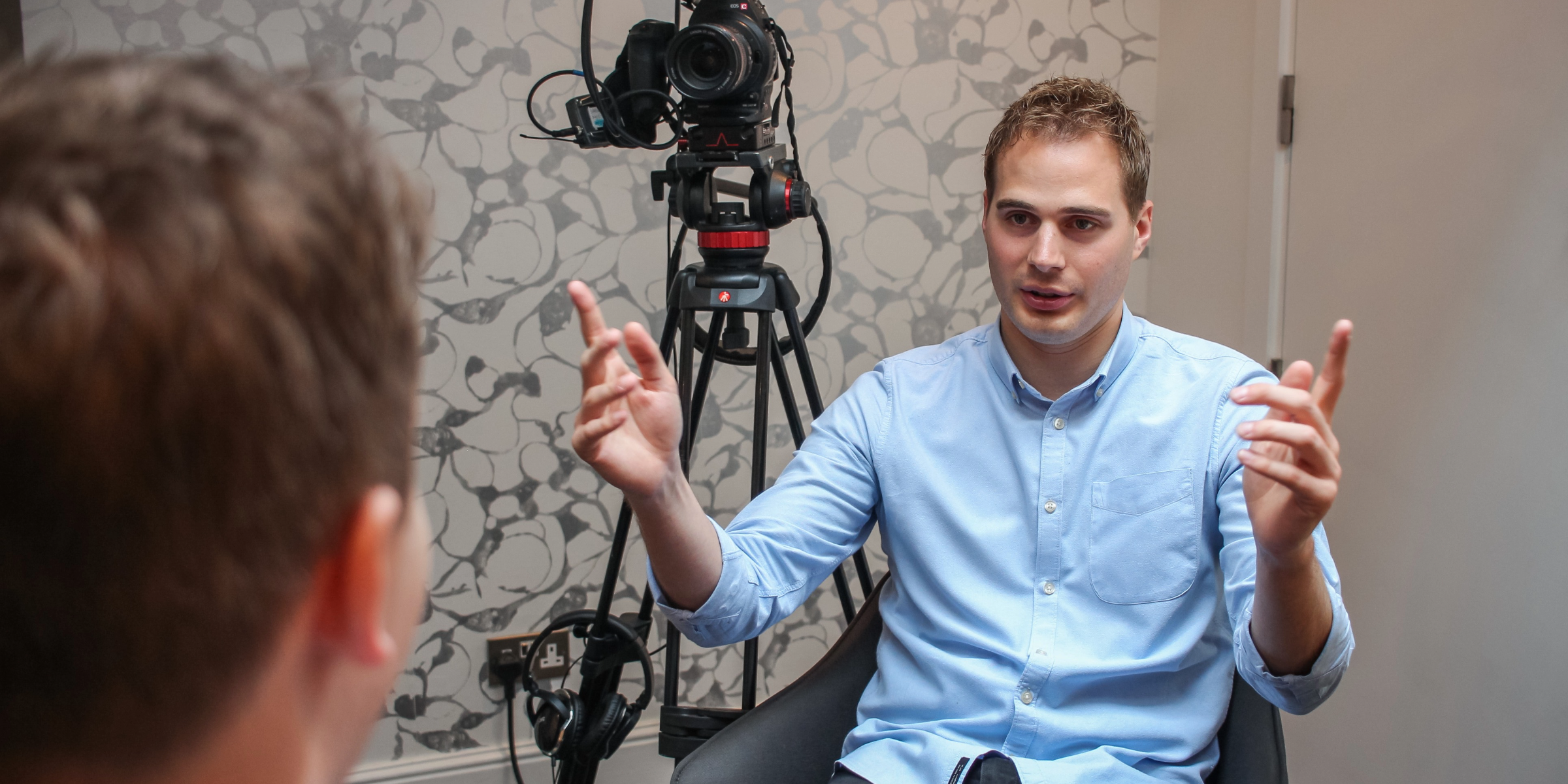In today’s fast-paced world of business PR, where competition is fierce and public perception can make or break a brand, effective communication and the creation of positive reputation is key.

When considering a broadcast PR campaign, the choice of brand spokesperson is a vital part in achieving this. Whether the campaign is designed to launch a new product, manage a crisis, or drive awareness of a particular activity, the right spokesperson can elevate your broadcast PR efforts, develop trust, and create lasting connections with your target audience.
The following blog with delve deeper into the important role a brand spokesperson can play in a broadcast PR campaign and explore how they can help to significantly enhance your business’s PR strategy.
What is a brand spokesperson?
In the busy world of broadcast PR, the term spokesperson is bounced around a lot, but what exactly is it? Well, they are a designated representative of a company who will take part in media interviews and communicate key messages on behalf of the brand. They are typically individuals who embody the brand’s values, and will articulate them clearly and confidently across various media platforms. A spokesperson might be the company CEO, head of department or an expert in their field who is seen as credible, knowledgeable, and relatable to the target audience of the TV or radio network.
The main role of a brand spokesperson is to represent the brand’s voice to the public, particularly in media engagements, during product launches, or even in crisis management. Their credibility and ability to engage effectively with the audience are critical in shaping public perception of the brand. They will need to be confident, well-rehearsed and ready to answer difficult questions from journalists, should they arise.

What is the difference between a brand spokesperson and a brand ambassador?
Although brand spokespeople and brand ambassadors are both integral to enhancing a brand’s image, their background and roles tend to differ in the following ways:
Brand Spokesperson: Typically, a brand spokesperson will be the boss or employee of the company in question. Their role will be a more formal one, serving as the official voice of the business. They will be trained to handle press conferences, media interviews, and public speeches so should have no issues answering tougher questions should they arise, especially from business shows. The job of a spokesperson is to represent the company, answer to any recent news stories and communicate where the company stands on a variety of issues.
Brand Ambassador: On the other hand, a brand ambassador tends to take a more informal role in broadcast PR interviews. Rather than being an employee or boss of a company, they will often be asked to speak on behalf of the business and will often be paid a sum of money for their efforts. Ambassadors are often influencers or celebrities who use and endorse the brand’s products in everyday life, and will also often share content across their social media channels allowing key messages to be seen or heard by wider audiences. This helps to share positive experiences and goes a long way to building trust and loyalty.
Ambassadors are less likely to be chosen to speak on behalf of a business in a crisis but can play a vital role in shaping the brand’s image through endorsements and personal engagement, as part of a radio day for instance.
While both the roles of the ambassador and brand spokesperson help promote a business or brand, a spokesperson serves as the official public voice, whereas an ambassador is more of an advocate or promoter in a less formal capacity.
Some of their key responsibilities include:
- Representing the Brand in Media: The primary duty of the role is to communicate the brand’s message through media channels. This could include television interviews, radio shows, sometimes print media engagements, or more recently through podcasts. They will deliver pre-decided key messages which align with the brand’s goals.
- Shaping Public Perception: Since a spokesperson is the face and voice of the brand, their public persona and communication style directly shape how the public perceives the brand. They must present themselves in a manner that reflects the brand’s core values and resonates with its audience. Our media training options can help get the most out of the interview, after all, no business wants a media interview to do more harm than good! **insert link to media training service page**
- Crisis Management: During a PR crisis, a company spokesperson becomes the focal point of damage control efforts. Should there be a negative news story about an industry or particular company, news journalists may call for a representative from the company to answer some hard questions on air. With the right training, such as that offered by Shout! Communications, the brand spokesperson can turn negative situations around by addressing concerns transparently and providing assurances to the public and stakeholders.
- Building Trust and Authority: Trust is a critical component in all of our broadcast PR campaigns, and a good spokesperson can establish and maintain it. By appearing credible, knowledgeable, and confident, they become the brand’s trusted figure, helping to boost the brand’s authority in the marketplace.
- Representing the Brand in Media: The primary duty of the role is to communicate the brand’s message through media channels. This could include television interviews, radio shows, sometimes print media engagements, or more recently through podcasts. They will deliver pre-decided key messages which align with the brand’s goals.
- Shaping Public Perception: Since a spokesperson is the face and voice of the brand, their public persona and communication style directly shape how the public perceives the brand. They must present themselves in a manner that reflects the brand’s core values and resonates with its audience. Our media training options can help get the most out of the interview, after all, no business wants a media interview to do more harm than good! **insert link to media training service page**
- Crisis Management: During a PR crisis, a company spokesperson becomes the focal point of damage control efforts. Should there be a negative news story about an industry or particular company, news journalists may call for a representative from the company to answer some hard questions on air. With the right training, such as that offered by Shout! Communications, the brand spokesperson can turn negative situations around by addressing concerns transparently and providing assurances to the public and stakeholders.
- Building Trust and Authority: Trust is a critical component in all of our broadcast PR campaigns, and a good spokesperson can establish and maintain it. By appearing credible, knowledgeable, and confident, they become the brand’s trusted figure, helping to boost the brand’s authority in the marketplace.
Channels that can be utilised with a brand spokesperson
An effective brand spokesperson can be deployed across a variety of media channels to maximize brand exposure and ensure consistent communication. As the world of media continues to evolve, so too can the channels available to our clients, however, in the world of broadcast PR, the following are most prevalent:
- Television: Television is one of the most powerful channels for brand exposure. A spokesperson can appear on talk shows, magazine shows or news segments where they can engage directly with a mass audiences. The obvious benefit with television is that audiences can see the spokesperson, so nuances such as body language and posture can be incredibly important when it comes to portraying a positive company image.
- Radio: Despite ever growing alternatives, radio continues to go from strength to strength in 2024. Now, through digital listening opportunities such as smart speakers and DAB, there are even more ways to listen, meaning it remains a relevant channel for broadcast PR campaigns, especially for local or niche audiences. Radio interviews allow spokespeople to connect with listeners through voice, in a somewhat intimate way, focusing on storytelling and brand messaging.
- Social Media: In 2024, media channels are becoming somewhat integrated. It is not uncommon for a radio interview to take place in vision and be clipped up for social media channels. Social media platforms like Instagram, Twitter, LinkedIn, and Facebook are vital in today’s digital PR world and can add a welcome boost to audience and engagement figures of any campaign. As a result, a spokesperson’s message can be amplified through these platforms, reaching millions of people instantly. Social media also allows for two-way communication, where the spokesperson can engage directly with the audience.
- Podcasts: As more businesses embrace digital tools, podcasts have become popular channels for spokespeople. While the sell-in and lead time to appear on the most popular titles can be significantly longer that radio or TV, podcasts allow in-depth discussions and targeted engagement, especially for B2B brands or niche markets.
- Establishing Credibility and Trust: A credible company spokesperson brings authenticity to your brand. By consistently delivering clear and confident messaging, they help build a sense of trust with your target audience. Likewise, if the interview involves comment on a current news story or topic, offering someone as the voice of the company versus a third-party spokesperson is most likely to position the company in a positive light.
- Amplifying Brand Awareness: A spokesperson’s presence across various channels significantly increases brand visibility. Whether they appear on television, radio, or across social media, their role is to amplify the brand’s message to a broader audience.
- Managing Crisis Effectively: In times of crisis, a skilled spokesperson can mitigate damage by providing timely and transparent updates. Their role is crucial in maintaining the brand’s reputation during turbulent times.
- Strengthening Brand Identity: Through consistent key messaging, a spokesperson ensures that the brand’s voice remains in harmony across all a variety of platforms. This helps in solidifying the brand’s identity in the minds of audiences and consumers.
- Building Emotional Connections: Relatable and engaging spokespeople can humanise your brand, fostering stronger emotional connections with consumers. Their personality, charisma and body language can all lead to an increase in connection along with brand loyalty and advocacy as a result.
Examples of a brand spokesperson in action
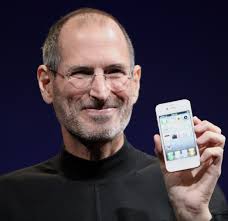


Here are some notable examples of famous brand spokespeople who have successfully represented their brands:
- Steve Jobs (Apple): Steve Jobs (above left, Wikipedia) was more than just the co-founder of Apple; he became the corporate face of the company. His charismatic presentations during product launches and media interviews revolutionized the way technology was marketed, making Apple synonymous with innovation and quality.
- George Clooney (Nespresso): George Clooney’s long-standing partnership with Nespresso (above middle, copyright Nespresso) made him a recognisable brand ambassador. His charm and sophistication aligned perfectly with Nespresso’s premium image and his sizable fan following certainly helped boost the reputation of the brand.
- Jennifer Aniston (Emirates): Jennifer Aniston’s collaboration with Emirates Airline helped elevate the brand’s luxurious and high-end image. Her status as a beloved Hollywood figure created a powerful association between her personal brand and Emirates’ promise of exceptional service.
How to find a spokesperson for your brand - key considerations and top tips
Choosing the right brand spokesperson requires careful consideration. Here are some key factors to keep in mind:
- Relevance to Your Brand: The spokesperson should align with your brand’s values, target audience, and industry. Their personal or professional background should resonate with your core messaging.
- Credibility and Expertise: You should look for individuals who are seen as credible and knowledgeable. Whether it’s an industry expert or a well-known personality, they must be able to speak authoritatively about your brand.
- Communication Skills: A business spokesperson should be an excellent communicator, both through verbal and non-verbal means. They should be comfortable in interviews, able to answer difficult questions and be calm under pressure.
- Relatability: It’s essential that your brand spokesperson can connect with your audience on an emotional level. Their persona should be relatable to the people you want to reach, making it easier to foster trust and loyalty. If targeting a Radio 1 audience for instance, you are likely to want to engage the services of a Gen Z spokesperson. Likewise, if you want to target a baby boomer audience, a spokesperson from that age group will resonate with the audience more effectively.
- Track Record: Evaluate the brand spokesperson’s past engagements. Have they represented other brands previously? How was their performance? A proven track record is a strong indicator of success. Also, it’s wise to check past social media posts. Have they spoken negatively about your brand or industry in the past? Have they posted negative comments about other news stories which may make the collaboration unwise?
Conclusion
Finding the right brand spokesperson can transform your broadcast PR efforts giving your business a human face and voice that resonates with your audience. This can massively impact awareness and return on investment in a positive way.
At Shout! Communications, we specialise in helping brands identify, train, and prepare the perfect spokesperson, helping to bring their broadcast PR campaign to life. Whether you need someone for a product launch, media interview, or crisis management, our team is here to guide you through every step of the process.
Don’t leave your brand’s reputation to chance, let Shout! Communications help you find a brand representative who can take your broadcast PR strategy to the next level.
Are you ready to find the perfect spokesperson for your brand? Contact us today and let’s get started!
Get in Touch
Outcome
Succinct soundbites along with cinematic, scene-setting montages of the event and location make for some beautiful videos. Founders Forum used the videos to promote future events and create brand awareness.
